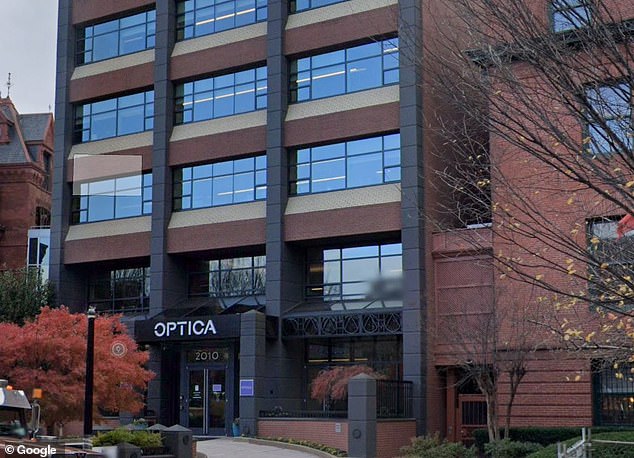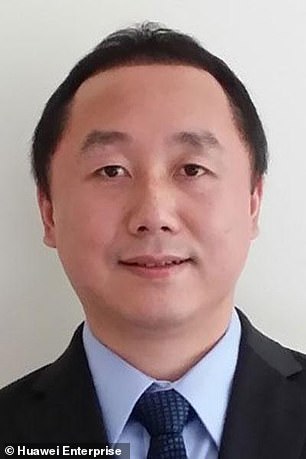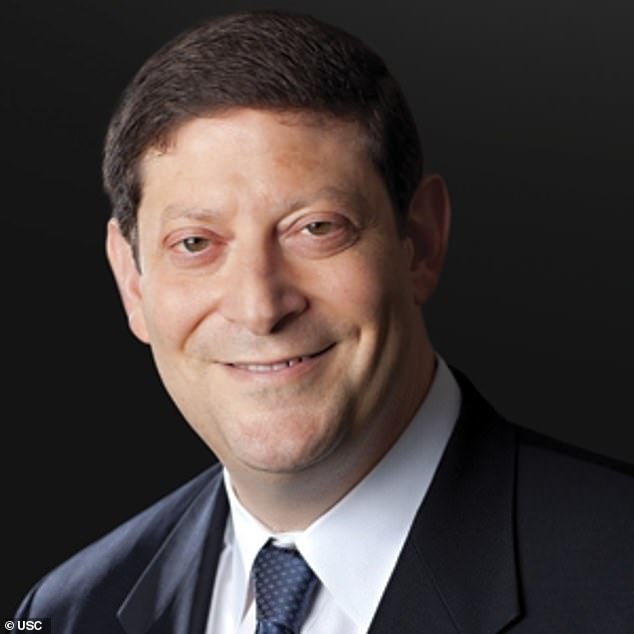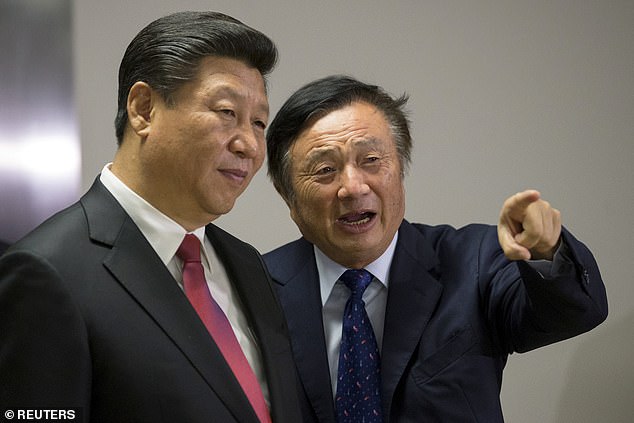Chinese telecommunications giant Huawei has been quietly funding cutting-edge research at top US universities, despite being blacklisted by the US government.
Huawei is using an independent Washington, DC-based foundation to donate millions of dollars to universities, including Harvard, from 2022, according to an explosive report from Bloomberg.
The United States has imposed restrictions on Huawei over fears that it is beholden to the Chinese Communist Party, and its technology could be used by Xi Jinping as a spy tool to promote his anti-American agenda.
However, a research competition funded exclusively by Huawei has attracted hundreds of professors from top American universities, many of whom, like Harvard, have banned their researchers from working with the Chinese company.
The competition is overseen by the Optica Foundation, a wing of the nonprofit Optica, which focuses on communications, biomedical diagnostics and lasers.
The United States has imposed restrictions on Huawei over fears that it is beholden to the Chinese Communist Party, and its technology could be used by Xi Jinping as a spy tool to promote his anti-American agenda. Xi is seen with Ren Zhengfei, president of Huawei

Huawei’s chief optical standards expert, scientist Xiang Liu, is part of the competition’s 10-person selection committee.
In documents seen by Bloomberg, the foundation states that it “will not be required to designate Huawei as a funding source or program sponsor” for the contest.
Furthermore, the document notes that ‘the existence and content of this Agreement and the relationship between the Parties will also be considered Confidential Information.’
Several applicants and university officials told Bloomberg they did not know Huawei was behind the program, which hands out $1 million a year.

Huawei’s chief optical standards expert, scientist Xiang Liu, is part of the competition’s 10-person selection committee.
A Huawei spokesperson told Bloomberg that the Optica Foundation was created to “support global research and promote scholarly communication,” and that there were no malicious intentions.
Optica CEO Liz Rogan said some of the foundation’s donors, including Americans, prefer to remain anonymous and that “there is nothing unusual about this practice.”
Rogan told DailyMail.com in a statement: ‘The Bloomberg story has raised some important questions not only for the Optica Foundation but for the broader research community.
‘The foundation’s donors are clearly listed in our annual report. We are conducting a holistic review of our policies to identify ways to increase transparency as the foundation continues to support young researchers in our community.’
As Bloomberg notes, Optica’s competition is unlikely to violate US Commerce Department regulations that make sharing technology illegal with Huawei due to the type of research being funded.
Experts have expressed concern that Beijing will use Huawei to place bets on the telecommunications and technology industries in the Western world.
There are also concerns that Huawei could recruit talent and obtain intellectual property from American academics.
Two researchers from Texas A&M University applied to participate in the contest without being aware of its ties to Beijing.
At least one applicant came from the Massachusetts Institute of Technology, which has a policy against working with Huawei.
Meanwhile, two winners from the last two years come from the University of Southern California, which also denied knowledge of the contest’s connection to Huawei.

Harvard has also banned its researchers from working with Huawei, but Harvard physics professor Eric Mazur serves as chairman of the board of directors of the Optica Foundation.

USC engineering professor Alan Willner served as a judge for the competition.
Additionally, USC engineering professor Alan Willner served as a judge for the competition.
The Optical Foundation demanded that the contest winners’ universities accept the money on their behalf.
Harvard has also banned its researchers from working with Huawei, although Harvard physics professor Eric Mazur serves as chairman of the board of directors of the Optical Foundation.
He told Bloomberg: “As the Foundation grows and continues to explore avenues to expand our programming, we are committed to ensuring clear transparency policies related to our funding sources.”
In 2022, the United States banned the sale of communications equipment manufactured by Huawei and ZTE.
It also restricted the use of some Chinese-made video surveillance systems, citing an “unacceptable risk” to national security.
The White House said in 2020 that Huawei can secretly access communications through networking equipment it sells globally.
U.S. officials have long argued that Huawei has a duty under Chinese law to spy on behalf of the country’s ruling Communist Party. Huawei denies that claim.

